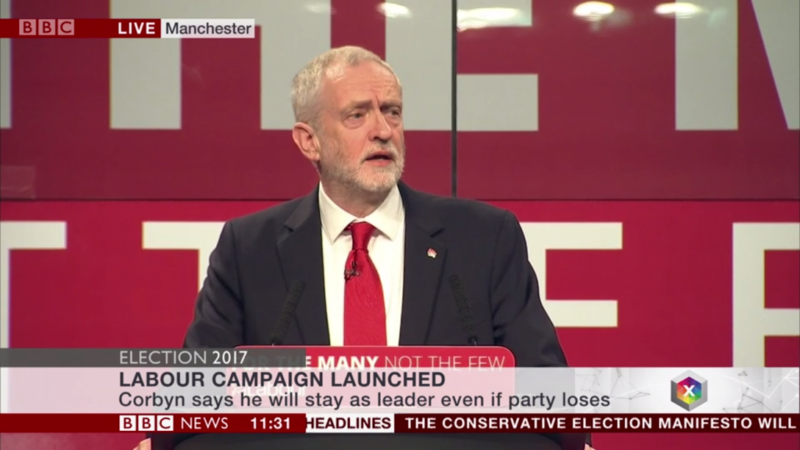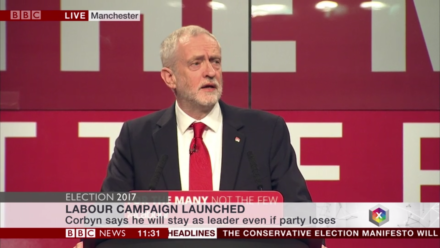

Labour lost the election but what was revealed in our gains and in the reining in of the Conservatives to minority government is that there is a space for a socialist politics in this country. That we ended up with more seats than in 2015 goes to show that socialist ideas are not merely acceptable, they are popular.
The neoliberal consensus is weak; after the blow of the 2008 crash, it should have died. Instead, for the past ten years, it has staggered, zombified and all the while unchallenged by the left. Barack Obama was elected to create the change that would topple it, to bring about economic justice. He didn’t, and now, masquerading as populists, the Republicans control all three branches of government and Donald Trump is president. People demand change and, if Labour does not offer that change, we will be condemned to the electoral oblivion that our sister parties in Europe are facing.
The neoliberal consensus is primed for shattering and, to many, the Conservatives seem to stand for nothing. This election showed that if you blow harshly enough, the rotting shed begins to wobble, why not see what happens if we lean on it?
Since the war there have been two governments that have defined the politics which followed. The first was the Attlee ministry, whose influence permeated politics from 1945-79 and after this, Thatcher, whose shadow we still live in. Though governments through these periods change, the ethos stays the same. While there are serious policy distinctions to be made between Harold Wilson and Ted Heath, the latter could not stray far from Wilson in order to win the 1970 election, as the political consensus was still, in many ways, a Keynesian one in which government spending and the presence of the unions were seen as unquestionable aspects of governance.
Some 27 years later, the choice between Tony Blair and John Major was, similarly, one between the softening of a system or a continuation of it, the difference being that in 1997 it was Thatcher’s consensus, not Attlee’s. In the years between 1945 and 1979 Attlee won even when he lost, as Thatcher did after 1979. She did reportedly say, after all, that her greatest success was New Labour.
By shifting the parameters of what is acceptable then an ideology can dominate even when the party is out of power and, while it may be softened by the opposition, it will remain the same at its core – Blair was certainly far less austere than Major, but he continued the process of deregulation that Thatcher had begun. This trend also occurred in the United States, where Clinton and the New Democrats accepted the Reagan consensus. The monetarists won even when they lost, because their opposition accepted the economic foundations that they had laid out.
Labour gaining of seats under Jeremy Corbyn has proved that left-wing, anti-neoliberal politics has a place in this country, and that it can no longer be seen as ridiculous or utopian to demand radical change in our economy. Obviously, Labour did not win that election and we still have – for the time being – a Conservative government who will continue to thrust their neoliberal ideology onto the population. But, for the first time since 1997, Labour gained seats in Parliament, it was the largest swing towards the party since 1945 and, for the first time since 2001, Labour was not on the defensive; we weren’t just holding our ground, we were taking it.
The dynamic has now shifted – Labour seems to be headed towards being, at least, the largest party next election. This election has weakened the power of the Conservatives not just in the sense that they are a diminished force in parliament, but in that they are now having to concede to Labour’s platform in order to cling to a semblance of popularity. The Conservatives have already watered down their policies, including scrapping plans to reintroduce grammars and abolish free school meals.
If Labour pushes for structural change, rather than merely tinkering with policy, we can define the consensus for the next few decades. Labour could build new institutions such as regional banks, a national education service and engage in a more democratic nationalisation process, giving people control over their work. Labour could increase vocational training, introduce democratic corporate governance and breathe new life into a fully nationalised and democratic NHS. If these reforms are offered and implemented, then they may never be directly threatened with reversal.
Until recently we have been unable to break out of the confines that Thatcher created. If we push for a populist socialism of democracy and equality, then we can lock the Conservatives into a framework that protects our reforms and preserves our institutions.
A political consensus reflects what is considered to be realistic; now it’s Labour’s turn to define what that means.




More from LabourList
‘Factionalism at the top is weakening Labour – and handing a gift to Reform’
‘Europe must stand strong on its own as US security guarantees grow conditional’
‘Tackling poverty should be the legacy of Keir Starmer’s government’